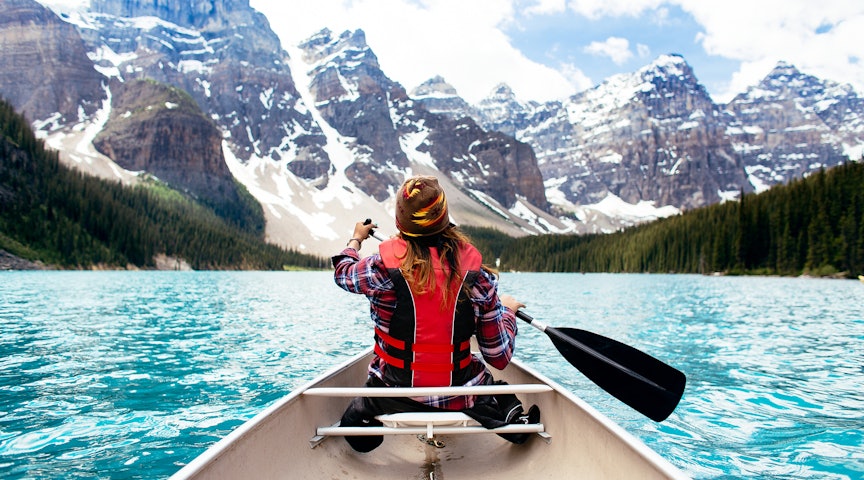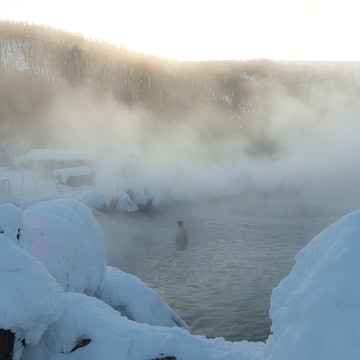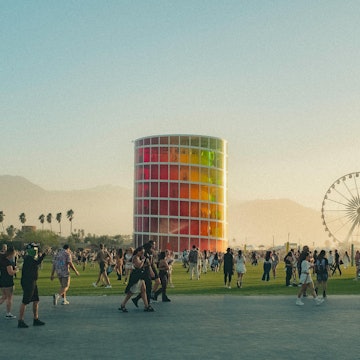

A Toronto 420 Cannabis rally at Yonge-Dundas Square. yelo34 / Getty Images
Recreational cannabis use is legal in Canada, and globetrotting connoisseurs love to get high in the Great White North. But if you choose to partake, how can you do so legally, safely and responsibility? Sounds like it’s time for the 4-1-1 on a 420 trip to Canada.
Rolling out reefer regulations
So you’re heading to Canada for a chill weekend getaway. What do you need to know to stay on the right side of the law?
For starters, there’s not one answer to that question. While the Cannabis Act (S.C. 2018, c. 16) sets some national standards – consumption is restricted federally to those 18 and older, for instance – the rules vary province-to-province and even town-to-town. Most provinces and territories have set a minimum age of 19.
Trina Fraser, an Ottawa-based attorney, knows how to navigate Canada’s pot laws. “It’s taken over my practice and I call myself a cannabis lawyer at this point,” she said.
Fraser recommends knowing the limits for cannabis possession: generally, up to 30 grams of dried cannabis or the equivalent amount of another product, such as fresh cannabis or liquid products, is fine. But those limits can vary from place to place.
Where you can purchase and consume marijuana also varies by the province or territory. For instance, in British Columbia cannabis consumption is permitted anywhere tobacco smoking is permitted, but not where children are present (beaches, parks, playgrounds) or in vehicles. Across the country in Newfoundland & Labrador, it’s allowed in private residences only. If you’re in Saskatchewan, you can buy from a private seller, including an online store. But in New Brunswick, sales are restricted to government-run liquor stores.
The federal government has a web site that describes the rules within each province, and Fraser also recommends visiting the websites of individual towns before pack your bags.

Take note of the cannabis you’re toking
If you’ve done your homework on the laws where you’re going and you’re already familiar with marijuana, you’re set. But if it’s your first time getting high you should know a few things going in. While a dispensary can help you make the best decision, here are points to consider:
Pace yourself: If a little bit is good, that doesn’t mean a lot is better. Flying too high can make you anxious and even sick.
Potencies vary: While it may be argued whether pot is more potent today than in the 1960s and 70s, there are definitely more varieties. Tetrahydrocannabinol (THC) is the compound responsible for the psychological effects of pot, and different strains come with different percentages. The dispensary will be happy to help you choose.
Indica vs. Sativa: Understanding these two primary plant varieties will help you decide what experience is best for you. The Indica plant has lower THC counts and is used for relaxation and pain reduction. Its mellow effects can cause drowsiness and stimulate the pleasure centers of the brain. The Sativa plant has higher THC counts and is used to treat depression, anxiety and chronic pain. It’s less overpowering, but could lead to a case of the giggles.
Don’t drive high: Drug-impaired driving is the leading criminal cause of death and injury in Canada and is punishable by license suspension, fines, criminal charges and even jail time.
Don’t bring it in, don’t take it out: According to the Canada Border Services Agency, “Taking cannabis across the border without a permit or exemption … will remain a serious criminal offence subject to arrest and prosecution, despite the legalization of cannabis in Canada.”
Know your rights: You may be asked by border patrol one specific question – Have you used cannabis while in Canada? – upon requesting re-entry at the Canadian border. “Why on earth would you answer that?” said Lynn Saunders, an immigration attorney. “It’s not their business.” While he does not advocate lying, he says the best blanket answer to this question is “I don’t want to answer that question.” If you are asked to join the border patrol in a round of secondary questions, he recommends withdrawing your request for re-entry, and waiting for a different time for the request.

It’s a tea party
If all this important information is harshing your mellow, here’s the good news: there are plenty of ways to enjoy cannabis legally, and plenty of companies who will help you do it.
“Suddenly, now it’s OK to be honest and authentic and it’s lovely,” said Mandy Farmer, CEO of Hotel Zed, a British Columbia boutique accommodation chain. The hotel has designated pot-smoking areas similar to the ones for tobacco smokers.
Hotel Zed, which claims to be "Rebels against the Ordinary," already boasts quirky amenities such as fog machines and rotary dial phones. Fully embracing the cannabis culture comes naturally. “Really, it’s a nice fit with legalization,” Farmer said.
Most of Toronto’s parks are cannabis-friendly, including some dog-friendly parks good for both Scooby and a doobie. Vancouver Seed Bank has garden starters for Canadian cannabis tourists.
In Montreal you can book a full cannabis experience from companies such as Montreal 420 Tours. These types of weed-centered vacation packages, already popular in places like Colorado, include activities ranging from pot-infused culinary tastings to cannabis massages.
Or you can do what people have always done in Quebec – go to a festival. During the summer, you’re as likely to smell weed wafting in the open air as you are corn dogs and popcorn.
In Quebec City, home of Canada’s largest music festival the Festival d’été de Quebec (FEQ), it is currently illegal to smoke cannabis on the streets and in public places. But festival organizers say that’s a challenge to enforce.
“To forbid might be a bad idea,” said communications director, Samantha McKinley. “There will be a lot of learning through trial and error. We’ll work to do the best thing with respect of the people.” FEQ cannabis use guidelines will have a dedicated website page starting early 2019.

A big business is budding
The cannabis industry in Canada is estimated to generate something in the neighborhood of $4.2 billion to $6.2 billion worth of sales annually, according to Canada's Parliamentary Budget Office.
“The federal legalization of marijuana in Canada is further proof that cannabis is no longer a fringe conversation or product,” said Chuck Smith, CEO of Dixie Brand, Inc. The Denver-based company, which manufactures and distributes cannabis-infused edibles, is set to have the largest global footprint among such firms. But even with all that revenue on the line, Destination Canada – the crown corporation for tourism promotion – does not yet consider cannabis tourism an area of focus. It’s too early for them to “speculate on the impact of policy/legislation to the tourism industry,” a spokesperson said.
That impact is likely sizable. California’s cannabis-friendly hoteliers say occupancy rates have risen significantly, and a tourism study of Denver’s cannabis industry found upward of 70 percent of sales comes from out-of-state-tourists.
https://shop.lonelyplanet.com/products/canada-travel-guide-13?via=Z2lkOi8vbG9uZWx5LXBsYW5ldC9Xb3JrYXJlYTo6Q2F0YWxvZzo6Q2F0ZWdvcnkvNTllZTQ5YmRmOTJlYTE0MTg2MDU4Njg5
Take your Canada trip with Lonely Planet Journeys
Time to book that trip to Canada
Lonely Planet Journeys takes you there with fully customizable trips to top destinations–all crafted by our local experts.
























